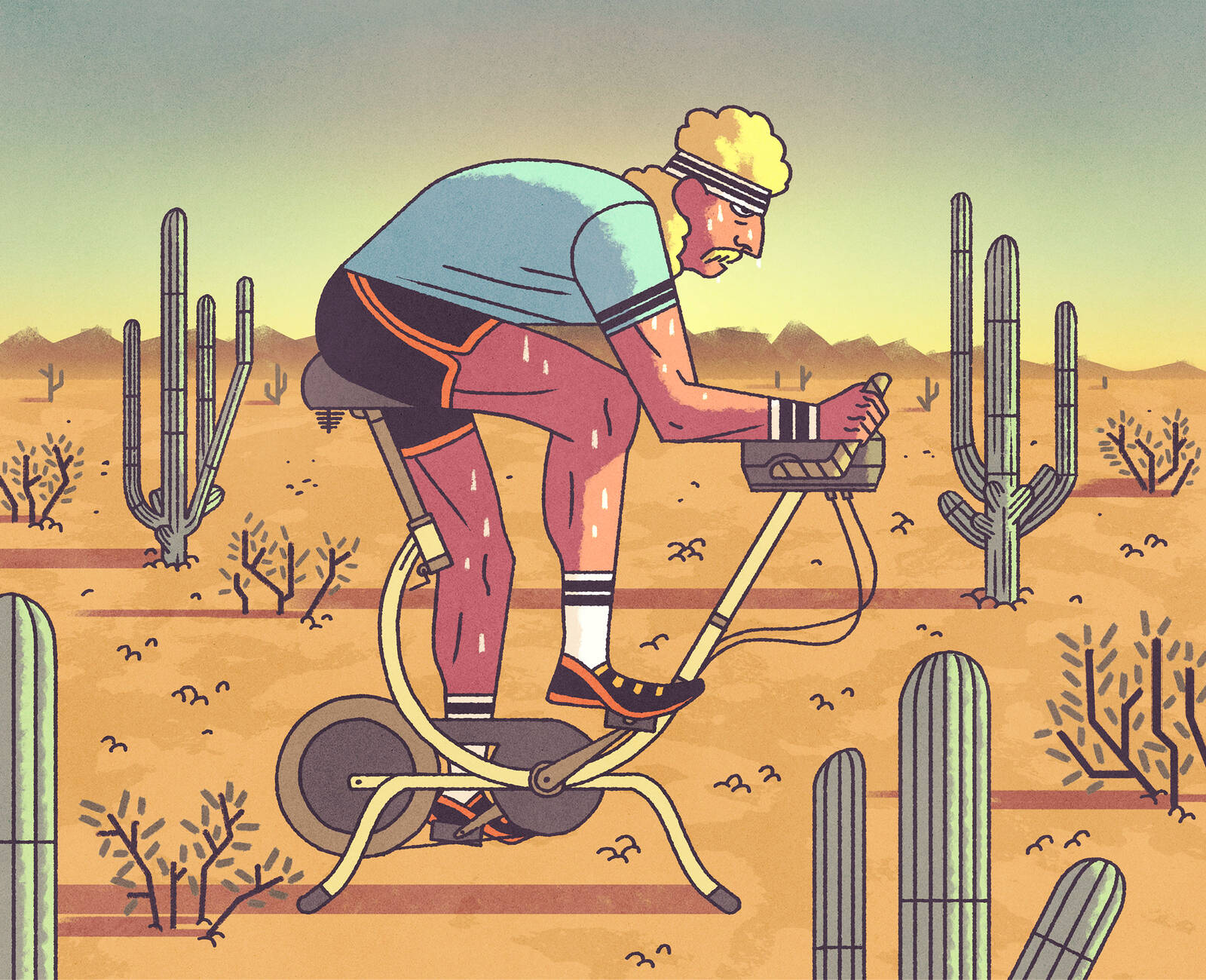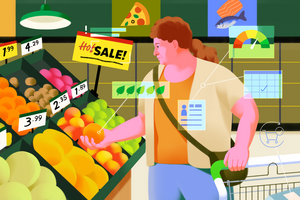Marketing Oct 6, 2016
Concerns about Scarcity Make Us Want to Be Better People
When we think we have too little, we will spend more on self-improvement.

Michael Meier
People become more selfish when resources are scarce.
Such is the conclusion of a research project Kelly Goldsmith completed about a year ago. But then she started to question whether human nature was really that dark. Perhaps there was a silver lining to this selfishness? And so a new research project was born.
Goldsmith, an assistant professor of marketing at the Kellogg School, along with her colleagues, set out to understand whether there was an upside to being selfish in the face of scarcity. The team found that indeed there was: the same motivation that drives consumers to get their fair share also drives them to try to improve themselves.
“It’s not that, all of a sudden, you develop this very pure desire to become an excellent person,” Goldsmith says. “It’s really motivated by the thought that, when the world is running out of resources, yes, it benefits me to secure what resources I can for myself, and it also benefits me to be the best person I can be. The person who’s the best is going to have the best access to resources.”
In other words, when we are reminded of scarcity, many of us become motivated to become a better version of ourselves. If we are faster, stronger, or smarter, we are going to be well positioned to get what we need. And under those conditions, the researchers found, we may also be willing to pay more for products and services that promise self-improvement.
Proving the Theory
Goldsmith, along with Caroline Roux and Ali Tezer of Concordia University, conducted four experiments to examine how being reminded of resource scarcity impacts behavior.
In one experiment, they recruited 116 participants who either described situations in which they did not have enough of something or a few things they did during the past week.
“when the world is running out of resources, yes, it benefits me to secure what resources I can for myself, and it also benefits me to be the best person I can be.”
They were then asked which of two kinds of VitaminWater they were more likely to purchase. One bottle, the “Focus” water, emphasized its ability to deliver clarity and alertness to improve mental performance. “Essential” water, on the other hand, simply promised hydration—something that any water would deliver. Both waters were the same price.
The researchers found, as predicted, that thoughts of scarcity led to a preference for bettering oneself. Sixty-six percent of participants who had been thinking about resource scarcity choose Focus, with its self-improvement benefits, while only 47 percent of the control group did.
But would thoughts of scarcity affect people’s willingness to spend money?
To find out, the researchers recruited 170 undergraduate students who conducted the same writing exercise as above. Then the participants were shown a picture of Post-It Notes. For some, the caption read: “Sticky Notes for Effective Knowledge Retention! The Secret Weapon of Those Wishing to Improve.” Others simply saw the label “Sticky Notes.” How much would those in each group be willing to spend on the Post-Its?
Those who had been prompted beforehand to think about resource scarcity were willing to pay an average of 74 cents for Post-It Notes that touted self-improvement, while participants without this prompt were willing to pay just 42 cents for the same product.
The phenomenon was reversed for the Post-Its that were not paired with a message of self-improvement, with participants worried about resource scarcity setting the average price at 46 cents and the rest setting it at 57 cents.
Controlling the Future
Why might resource scarcity bring out the best in us—or at least the urge to be the best?
One factor may be a person’s desire for control. Prior research has shown that the wish for self-improvement is rooted in the desire to have control over the future.
To test whether this might be driving the urge for self-betterment, the researchers had 81 undergraduate students answer a series of questions to measure their desire for control. Some participants were then prompted to think about scarcity, while others were not. After that, the students watched an ad for a free smartphone app that promoted self-improvement and were asked if they would be likely to try the app.
The results showed, once again, that participants who had dwelled on resource scarcity were more likely to be interested in a product offering self-improvement. Critically, those who most desired control were also the most likely to want to use the app.
Takeaways for Marketers
These findings are highly relevant for marketers, Goldsmith says. There are many products that have self-improvement benefits—case in point: Post-It Notes—but are not positioned that way. Instead of focusing on feel-good messaging or general brand awareness, marketers may be better served to remind people that some resources are finite, so it is time to get fitter, smarter, and make the most out of life, she says.
This can hold true for scarce resources like fuel, or even resources like time, which consumers are all too frequently short on. Further, the appeal of self-improvement benefits could be particularly compelling during an economic recession, when thoughts of scarcity are generally on consumers’ minds.
“When the world is running out of stuff, you want to advance your own standing,” she says. “Not in a bad way, but just in a looking-out-for-yourself sort of way.”
Citation: Goldsmith, Kelly, Ali Tezer, and Caroline Roux. 2016. “When Thoughts of ‘Having Less’ Promote the Desire to Become One’s Best: Reminders of Resource Scarcity Increase the Desire for Self-Improvement.” Working paper.



